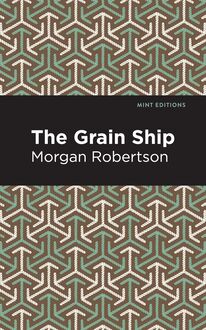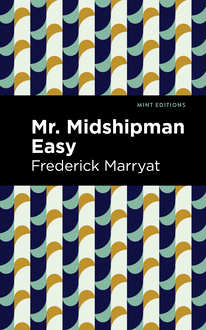-
 Univers
Univers
-
 Ebooks
Ebooks
-
 Livres audio
Livres audio
-
 Presse
Presse
-
 Podcasts
Podcasts
-
 BD
BD
-
 Documents
Documents
-
- Cours
- Révisions
- Ressources pédagogiques
- Sciences de l’éducation
- Manuels scolaires
- Langues
- Travaux de classe
- Annales de BEP
- Etudes supérieures
- Maternelle et primaire
- Fiches de lecture
- Orientation scolaire
- Méthodologie
- Corrigés de devoir
- Annales d’examens et concours
- Annales du bac
- Annales du brevet
- Rapports de stage
La lecture à portée de main
Vous pourrez modifier la taille du texte de cet ouvrage
Découvre YouScribe en t'inscrivant gratuitement
Je m'inscrisDécouvre YouScribe en t'inscrivant gratuitement
Je m'inscrisEn savoir plus
Vous pourrez modifier la taille du texte de cet ouvrage
En savoir plus

Description
A new captain must lead his crew to safety and face his own internal struggles as he works to overcome disrespect, insanity, and coming-of-age all while sailing on an unforgiving sea.
There is an invisible line that divides life into a before and after—adolescence and adulthood. The unnamed narrator of The Shadow Line is painfully aware of this, but is unsure where the line lies in his life. He recalls a number of rash decisions he has made, some more recent than others. Soon after he impulsively quits his comfortable job as a shipmate, the narrator meets two men who each test him in different ways. Captain Giles, a wise, patient man, tries to be a positive influence on the narrator. Hamilton, a snobby man with a sour attitude, is able to invoke anger as if he were trying to win an Olympic medal for it. This ignites the narrator’s poor relationship with irritation, as he has the tendency to lash out with hostility at even mild annoyances. Consequently. The narrator gets into pointless feuds. When he is offered a new job as a captain, controlling a ship and crew, Giles attempts to guide him and nurture the admirable and necessary qualities of a leader, including encouraging the narrator to manage his anger. However, once the narrator boards his new ship, and meets his new crew, including the previous captain, the lessons he learned from Giles are immediately challenged. Now, facing disrespect, heightened responsibility, and the perils of the sea, all with his pride at stake, the narrator must navigate where he stands in relation to his own shadow line, and whether he will keep the habits of his youth, or grow into the man he needs to be.
The Shadow Line by Joseph Conrad explores important and relatable themes of the internal conflicts everyone must confront as they age. Drawn from his own life experience, Conrad depicts the sea setting with vivid imagery and unmatched detail. With mysterious and complex characters, The Shadow Line depicts the universal struggles of the transition between life’s phases set to an intriguing and thrilling setting.
Joseph Conrad’s The Shadow Line is now available with a new, eye-catching cover design and is reprinted in a modern font, creating an approachable reading experience for a contemporary audience.
Sujets
Informations
| Publié par | Mint Editions |
| Date de parution | 08 décembre 2020 |
| Nombre de lectures | 0 |
| EAN13 | 9781513274386 |
| Langue | English |
Informations légales : prix de location à la page 0,0350€. Cette information est donnée uniquement à titre indicatif conformément à la législation en vigueur.
Extrait
The Shadow-Line
Joseph Conrad
The Shadow-Line was first published in 1916.
This edition published by Mint Editions 2021.
ISBN 9781513269382 | E-ISBN 9781513274386
Published by Mint Editions®
minteditionbooks .com
Publishing Director: Jennifer Newens
Design & Production: Rachel Lopez Metzger
Typesetting: Westchester Publishing Services
C ONTENTS PART I I II III PART II IV V VI
PART I
I
O nly the young have such moments. I don’t mean the very young. No. The very young have, properly speaking, no moments. It is the privilege of early youth to live in advance of its days in all the beautiful continuity of hope which knows no pauses and no introspection.
One closes behind one the little gate of mere boyishness—and enters an enchanted garden. Its very shades glow with promise. Every turn of the path has its seduction. And it isn’t because it is an undiscovered country. One knows well enough that all mankind had streamed that way. It is the charm of universal experience from which one expects an uncommon or personal sensation—a bit of one’s own.
One goes on recognizing the landmarks of the predecessors, excited, amused, taking the hard luck and the good luck together—the kicks and the half-pence, as the saying is—the picturesque common lot that holds so many possibilities for the deserving or perhaps for the lucky. Yes. One goes on. And the time, too, goes on—till one perceives ahead a shadow-line warning one that the region of early youth, too, must be left behind.
This is the period of life in which such moments of which I have spoken are likely to come. What moments? Why, the moments of boredom, of weariness, of dissatisfaction. Rash moments. I mean moments when the still young are inclined to commit rash actions, such as getting married suddenly or else throwing up a job for no reason.
This is not a marriage story. It wasn’t so bad as that with me. My action, rash as it was, had more the character of divorce—almost of desertion. For no reason on which a sensible person could put a finger I threw up my job—chucked my berth—left the ship of which the worst that could be said was that she was a steamship and therefore, perhaps, not entitled to that blind loyalty which… However, it’s no use trying to put a gloss on what even at the time I myself half suspected to be a caprice.
It was in an Eastern port. She was an Eastern ship, inasmuch as then she belonged to that port. She traded among dark islands on a blue reef-scarred sea, with the Red Ensign over the taffrail and at her masthead a house-flag, also red, but with a green border and with a white crescent in it. For an Arab owned her, and a Syed at that. Hence the green border on the flag. He was the head of a great House of Straits Arabs, but as loyal a subject of the complex British Empire as you could find east of the Suez Canal. World politics did not trouble him at all, but he had a great occult power amongst his own people.
It was all one to us who owned the ship. He had to employ white men in the shipping part of his business, and many of those he so employed had never set eyes on him from the first to the last day. I myself saw him but once, quite accidentally on a wharf—an old, dark little man blind in one eye, in a snowy robe and yellow slippers. He was having his hand severely kissed by a crowd of Malay pilgrims to whom he had done some favour, in the way of food and money. His alms-giving, I have heard, was most extensive, covering almost the whole Archipelago. For isn’t it said that “The charitable man is the friend of Allah?”
Excellent (and picturesque) Arab owner, about whom one needed not to trouble one’s head, a most excellent Scottish ship—for she was that from the keep up—excellent sea-boat, easy to keep clean, most handy in every way, and if it had not been for her internal propulsion, worthy of any man’s love, I cherish to this day a profound respect for her memory. As to the kind of trade she was engaged in and the character of my shipmates, I could not have been happier if I had had the life and the men made to my order by a benevolent Enchanter.
And suddenly I left all this. I left it in that, to us, inconsequential manner in which a bird flies away from a comfortable branch. It was as though all unknowing I had heard a whisper or seen something. Well—perhaps! One day I was perfectly right and the next everything was gone—glamour, flavour, interest, contentment—everything. It was one of these moments, you know. The green sickness of late youth descended on me and carried me off. Carried me off that ship, I mean.
We were only four white men on board, with a large crew of Kalashes and two Malay petty officers. The Captain stared hard as if wondering what ailed me. But he was a sailor, and he, too, had been young at one time. Presently a smile came to lurk under his thick iron-gray moustache, and he observed that, of course, if I felt I must go he couldn’t keep me by main force. And it was arranged that I should be paid off the next morning. As I was going out of his cabin he added suddenly, in a peculiar wistful tone, that he hoped I would find what I was so anxious to go and look for. A soft, cryptic utterance which seemed to reach deeper than any diamond-hard tool could have done. I do believe he understood my case.
But the second engineer attacked me differently. He was a sturdy young Scot, with a smooth face and light eyes. His honest red countenance emerged out of the engine-room companion and then the whole robust man, with shirt sleeves turned up, wiping slowly the massive fore-arms with a lump of cotton-waste. And his light eyes expressed bitter distaste, as though our friendship had turned to ashes. He said weightily: “Oh! Aye! I’ve been thinking it was about time for you to run away home and get married to some silly girl.”
It was tacitly understood in the port that John Nieven was a fierce misogynist; and the absurd character of the sally convinced me that he meant to be nasty—very nasty—had meant to say the most crushing thing he could think of. My laugh sounded deprecatory. Nobody but a friend could be so angry as that. I became a little crestfallen. Our chief engineer also took a characteristic view of my action, but in a kindlier spirit.
He was young, too, but very thin, and with a mist of fluffy brown beard all round his haggard face. All day long, at sea or in harbour, he could be seen walking hastily up and down the after-deck, wearing an intense, spiritually rapt expression, which was caused by a perpetual consciousness of unpleasant physical sensations in his internal economy. For he was a confirmed dyspeptic. His view of my case was very simple. He said it was nothing but deranged liver. Of course! He suggested I should stay for another trip and meantime dose myself with a certain patent medicine in which his own belief was absolute. “I’ll tell you what I’ll do. I’ll buy you two bottles, out of my own pocket. There. I can’t say fairer than that, can I?”
I believe he would have perpetrated the atrocity (or generosity) at the merest sign of weakening on my part. By that time, however, I was more discontented, disgusted, and dogged than ever. The past eighteen months, so full of new and varied experience, appeared a dreary, prosaic waste of days. I felt—how shall I express it?—that there was no truth to be got out of them.
What truth? I should have been hard put to it to explain. Probably, if pressed, I would have burst into tears simply. I was young enough for that.
Next day the Captain and I transacted our business in the Harbour Office. It was a lofty, big, cool, white room, where the screened light of day glowed serenely. Everybody in it—the officials, the public—were in white. Only the heavy polished desks gleamed darkly in a central avenue, and some papers lying on them were blue. Enormous punkahs sent from on high a gentle draught through that immaculate interior and upon our perspiring heads.
The official behind the desk we approached grinned amiably and kept it up till, in answer to his perfunctory question, “Sign off and on again?” my Captain answered, “No! Signing off for good.” And then his grin vanished in sudden solemnity. He did not look at me again till he handed me my papers with a sorrowful expression, as if they had been my passports for Hades.
While I was putting them away he murmured some question to the Captain, and I heard the latter answer good-humouredly:
“No. He leaves us to go home.”
“Oh!” the other exclaimed, nodding mournfully over my sad condition.
I didn’t know him outside the official building, but he leaned forward the desk to shake hands with me, compassionately, as one would with some poor devil going out to be hanged; and I am afraid I performed my part ungraciously, in the hardened manner of an impenitent criminal.
No homeward-bound mail-boat was due for three or four days. Being now a man without a ship, and having for a time broken my connection with the sea—become, in fact, a mere potential passenger—it would have been more appropriate perhaps if I had gone to stay at an hotel. There it was, too, within a stone’s throw of the Harbour Office, low, but somehow palatial, displaying its white, pillared pavilions surrounded by trim grass plots. I would have felt a passenger indeed in there! I gave it a hostile glance and directed my steps toward the Officers’ Sailors’ Home.
I walked in the sunshine, disregarding it, and in the shade of the big trees on the esplanade without enjoying it. The heat of the tropical East descended through the leafy boughs, enveloping my thinly-clad body, clinging to my rebellious discontent, as if to rob it of its freedom.
The Officers’ Home was a large bungalow with a wide verandah and a curiously suburban-looking little garden of bushes and a few trees between it and the street. That institution partook somewhat of the character of a residential club, but with a slightly Governmental flavour about it,
-
 Univers
Univers
-
 Ebooks
Ebooks
-
 Livres audio
Livres audio
-
 Presse
Presse
-
 Podcasts
Podcasts
-
 BD
BD
-
 Documents
Documents
-
Jeunesse
-
Littérature
-
Ressources professionnelles
-
Santé et bien-être
-
Savoirs
-
Education
-
Loisirs et hobbies
-
Art, musique et cinéma
-
Actualité et débat de société
-
Jeunesse
-
Littérature
-
Ressources professionnelles
-
Santé et bien-être
-
Savoirs
-
Education
-
Loisirs et hobbies
-
Art, musique et cinéma
-
Actualité et débat de société
-
Actualités
-
Lifestyle
-
Presse jeunesse
-
Presse professionnelle
-
Pratique
-
Presse sportive
-
Presse internationale
-
Culture & Médias
-
Action et Aventures
-
Science-fiction et Fantasy
-
Société
-
Jeunesse
-
Littérature
-
Ressources professionnelles
-
Santé et bien-être
-
Savoirs
-
Education
-
Loisirs et hobbies
-
Art, musique et cinéma
-
Actualité et débat de société
- Cours
- Révisions
- Ressources pédagogiques
- Sciences de l’éducation
- Manuels scolaires
- Langues
- Travaux de classe
- Annales de BEP
- Etudes supérieures
- Maternelle et primaire
- Fiches de lecture
- Orientation scolaire
- Méthodologie
- Corrigés de devoir
- Annales d’examens et concours
- Annales du bac
- Annales du brevet
- Rapports de stage




















